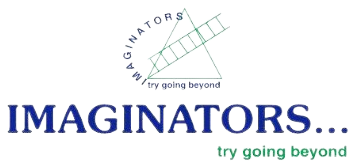Title: Facilitating Long-Term Success: Building Lasting Relationships with Your Hires
In the fast-paced world of recruitment, it’s not just about filling positions; it’s about fostering long-term success for both candidates and employers. While securing top talent is a crucial milestone, maintaining their engagement and satisfaction over the long term is equally essential. In this blog, we’ll explore strategies for facilitating long-term success and building lasting relationships with your hires.
- Onboarding with Purpose:
The onboarding process sets the tone for an employee’s entire tenure with your organization. Instead of a one-size-fits-all approach, tailor your onboarding program to each new hire’s role, goals, and learning style. Provide comprehensive training, introductions to key team members, and clarity on expectations and goals from day one. A well-executed onboarding process not only accelerates the integration of new hires but also lays the foundation for their long-term success. - Continuous Learning and Development:
Invest in the professional growth and development of your employees by offering ongoing learning opportunities and career advancement pathways. Provide access to training programs, workshops, certifications, and mentorship opportunities that enable employees to expand their skills, knowledge, and capabilities. Encourage a culture of continuous learning and innovation, where employees feel empowered to take ownership of their career development and pursue new challenges. - Meaningful Feedback and Recognition:
Regular feedback and recognition are essential for fostering a culture of engagement, motivation, and accountability. Establish a feedback-rich environment where managers provide constructive feedback, praise achievements, and recognize contributions in a timely and specific manner. Encourage peer-to-peer recognition and celebrate milestones, accomplishments, and team successes to reinforce a sense of belonging and appreciation. - Promoting Work-Life Balance:
Striking a balance between work and personal life is critical for employee well-being and job satisfaction. Encourage flexible work arrangements, such as remote work options, flexible hours, and compressed workweeks, that accommodate employees’ diverse needs and responsibilities outside of work. Prioritize mental health and wellness initiatives, promote a culture of mindfulness and self-care, and lead by example in fostering a healthy work-life balance. - Empowering Leadership and Autonomy:
Empower employees to take ownership of their work, make decisions, and contribute meaningfully to organizational goals. Foster a culture of trust, transparency, and accountability, where employees feel empowered to voice their opinions, share ideas, and take calculated risks. Provide opportunities for autonomy and leadership development, allowing employees to grow and thrive in their roles and contribute to the organization’s success. - Building a Supportive Community:
Cultivate a sense of belonging and camaraderie among your employees by fostering a supportive and inclusive work environment. Encourage collaboration, teamwork, and cross-functional relationships that break down silos and foster a sense of unity and shared purpose. Organize team-building activities, social events, and community service initiatives that strengthen bonds and reinforce your organization’s values. - Regular Check-Ins and Career Conversations:
Schedule regular one-on-one check-ins between managers and employees to discuss progress, goals, and career aspirations. Use these opportunities to provide guidance, address concerns, and identify development opportunities that align with employees’ interests and ambitions. Foster open and honest communication, and encourage employees to actively participate in shaping their career paths and professional development plans.
In conclusion, facilitating long-term success requires a holistic approach that prioritizes employee engagement, development, well-being, and community-building. By investing in these strategies and fostering a culture of support, growth, and empowerment, you can build lasting relationships with your hires and create an environment where employees thrive, excel, and contribute to the sustained success of your organization.

